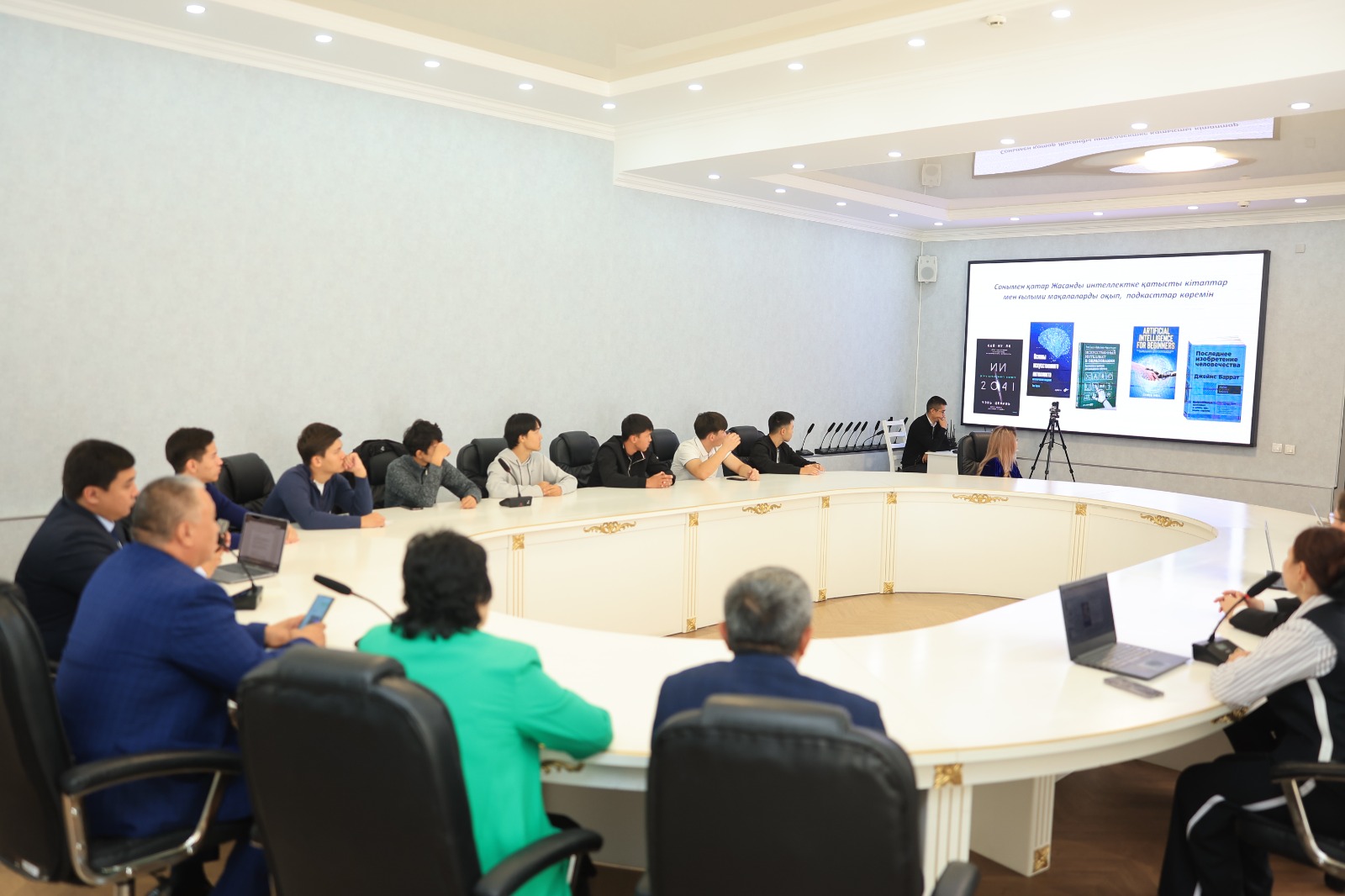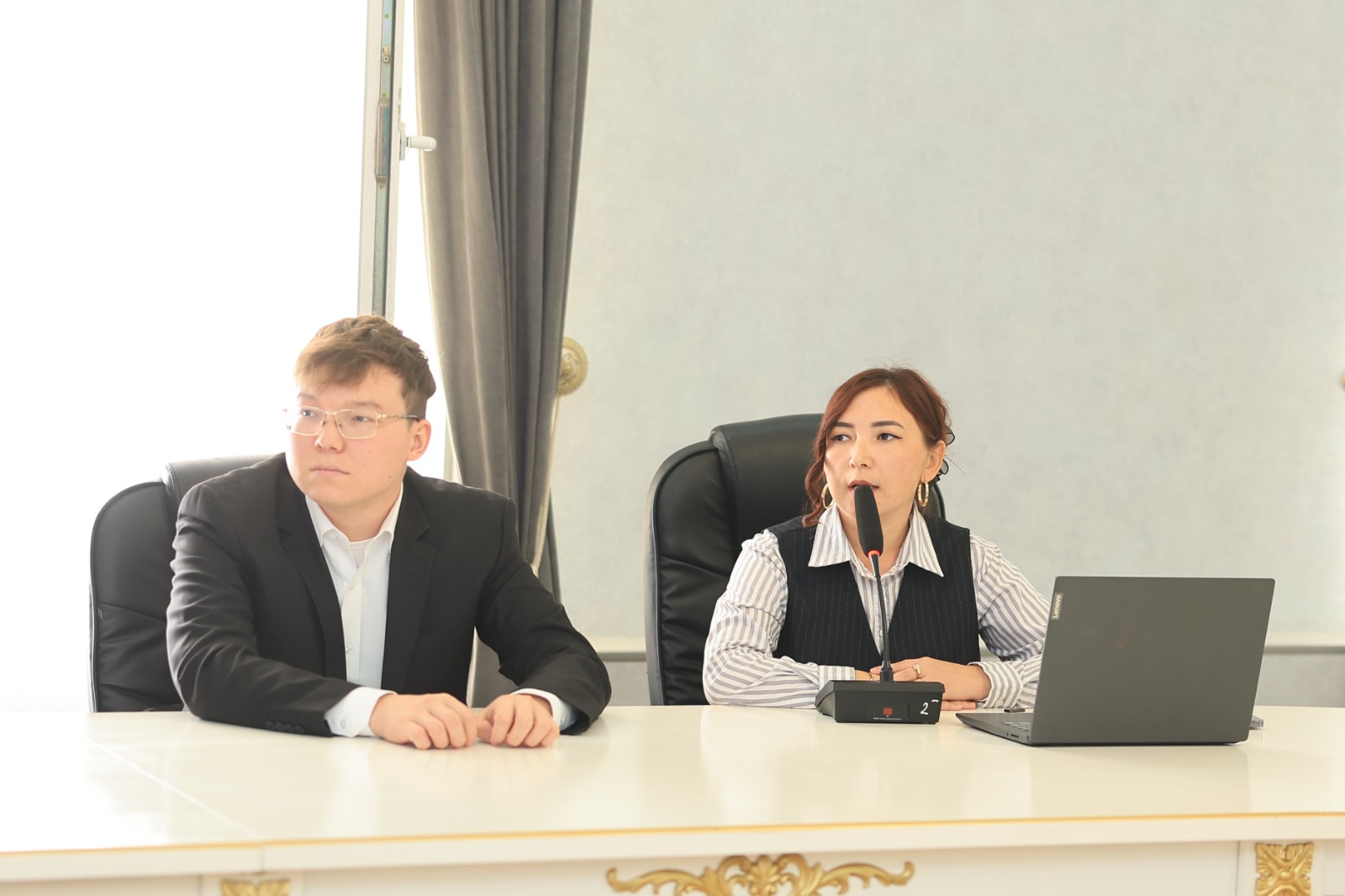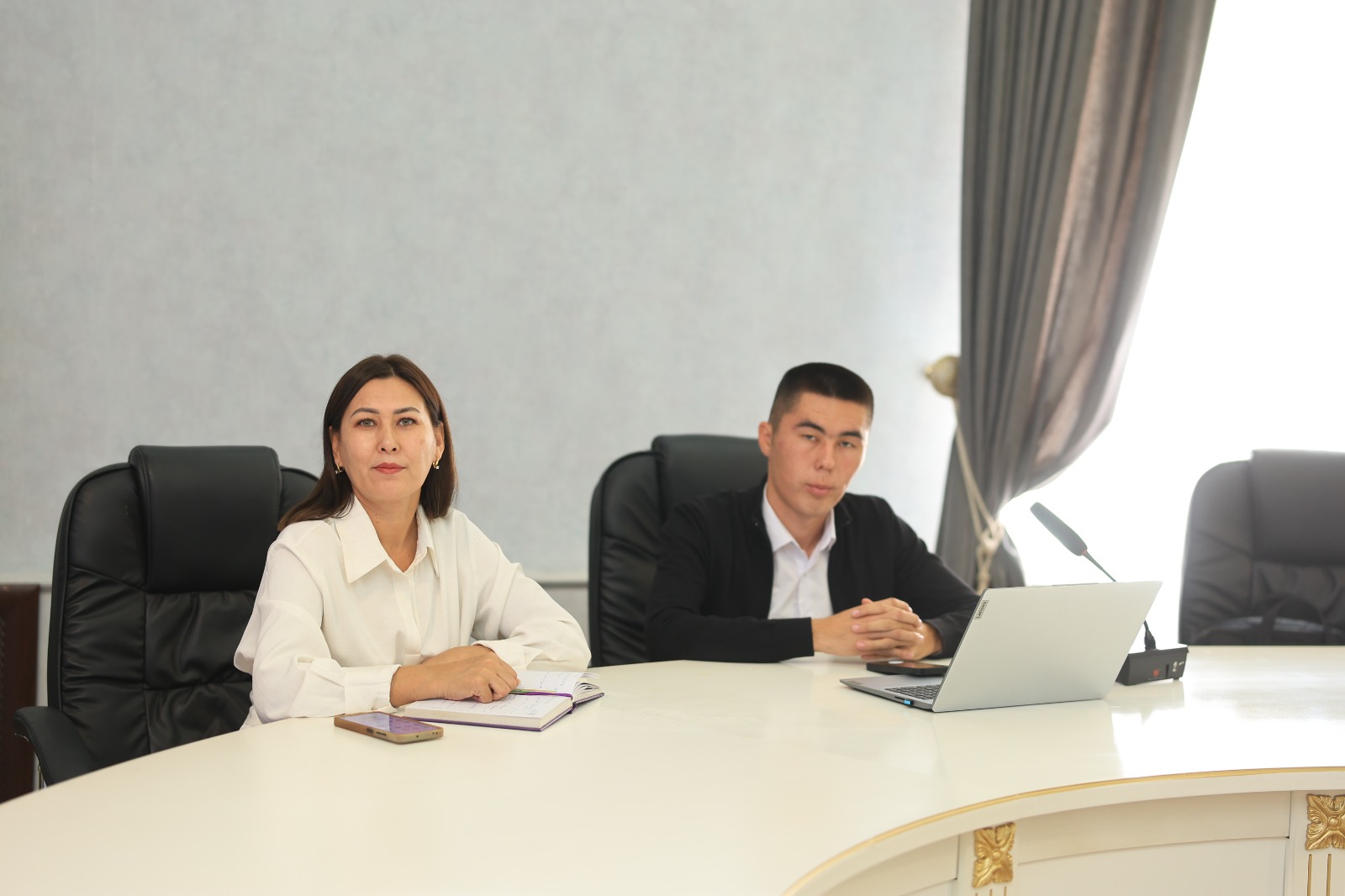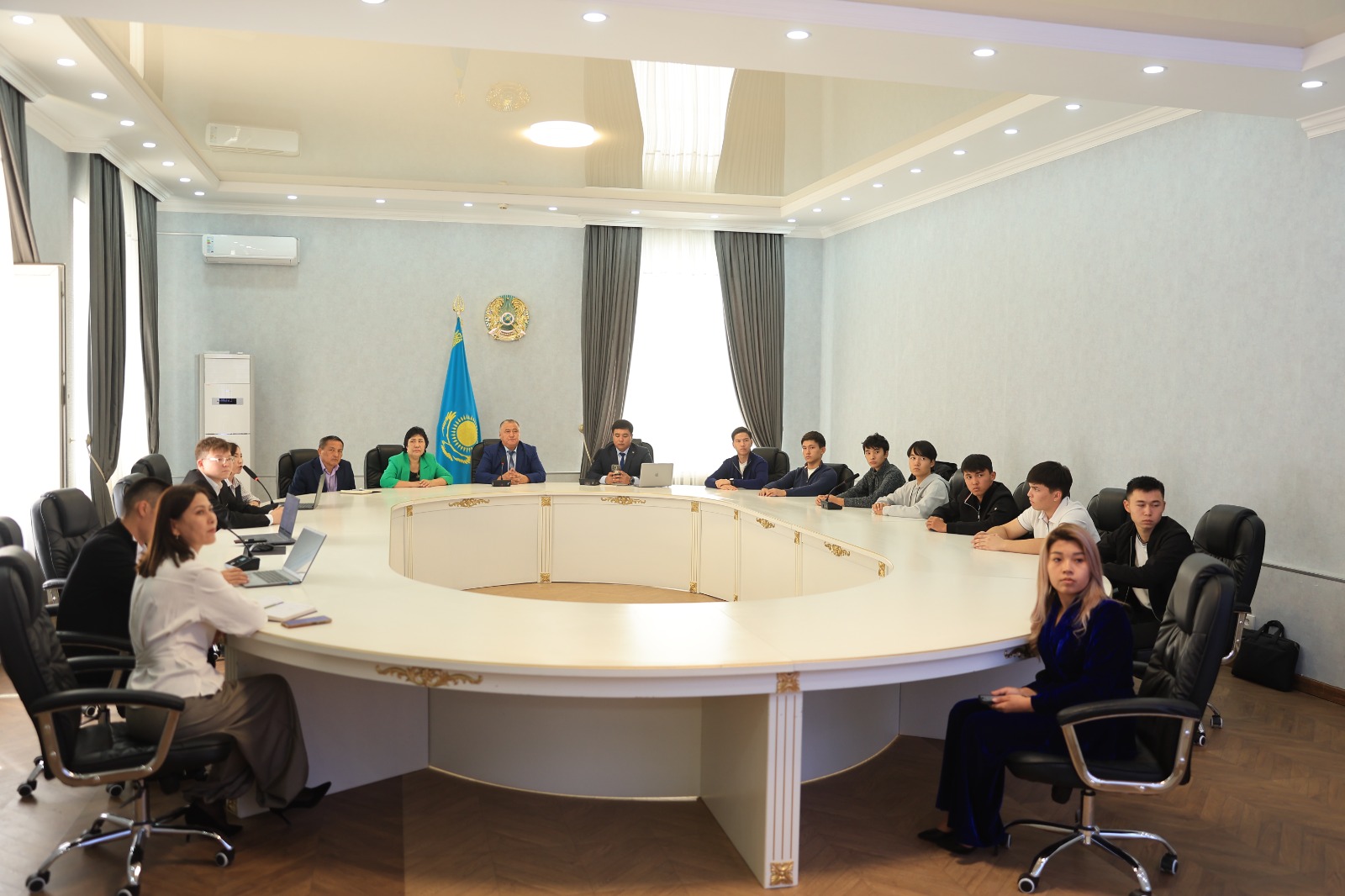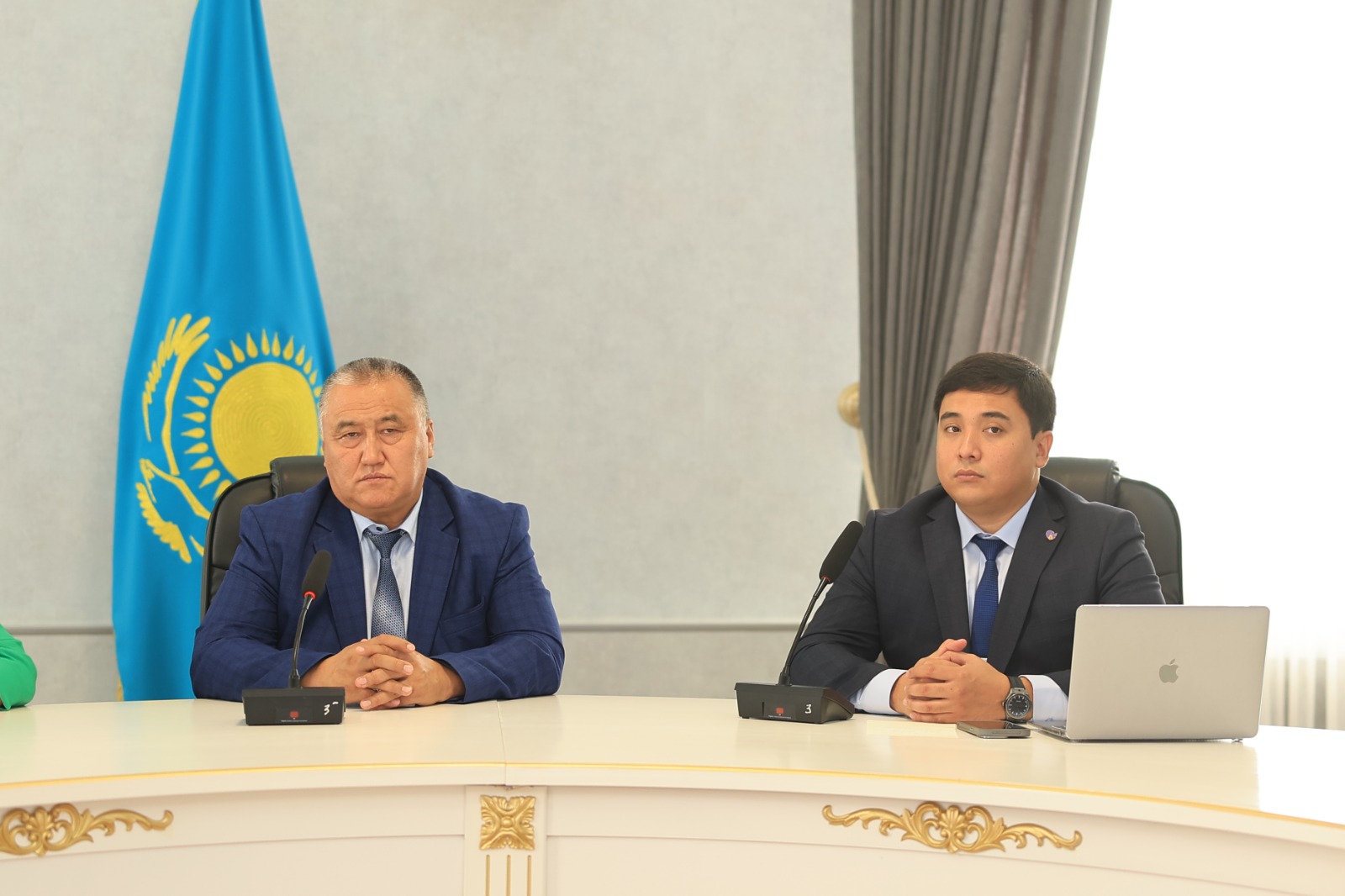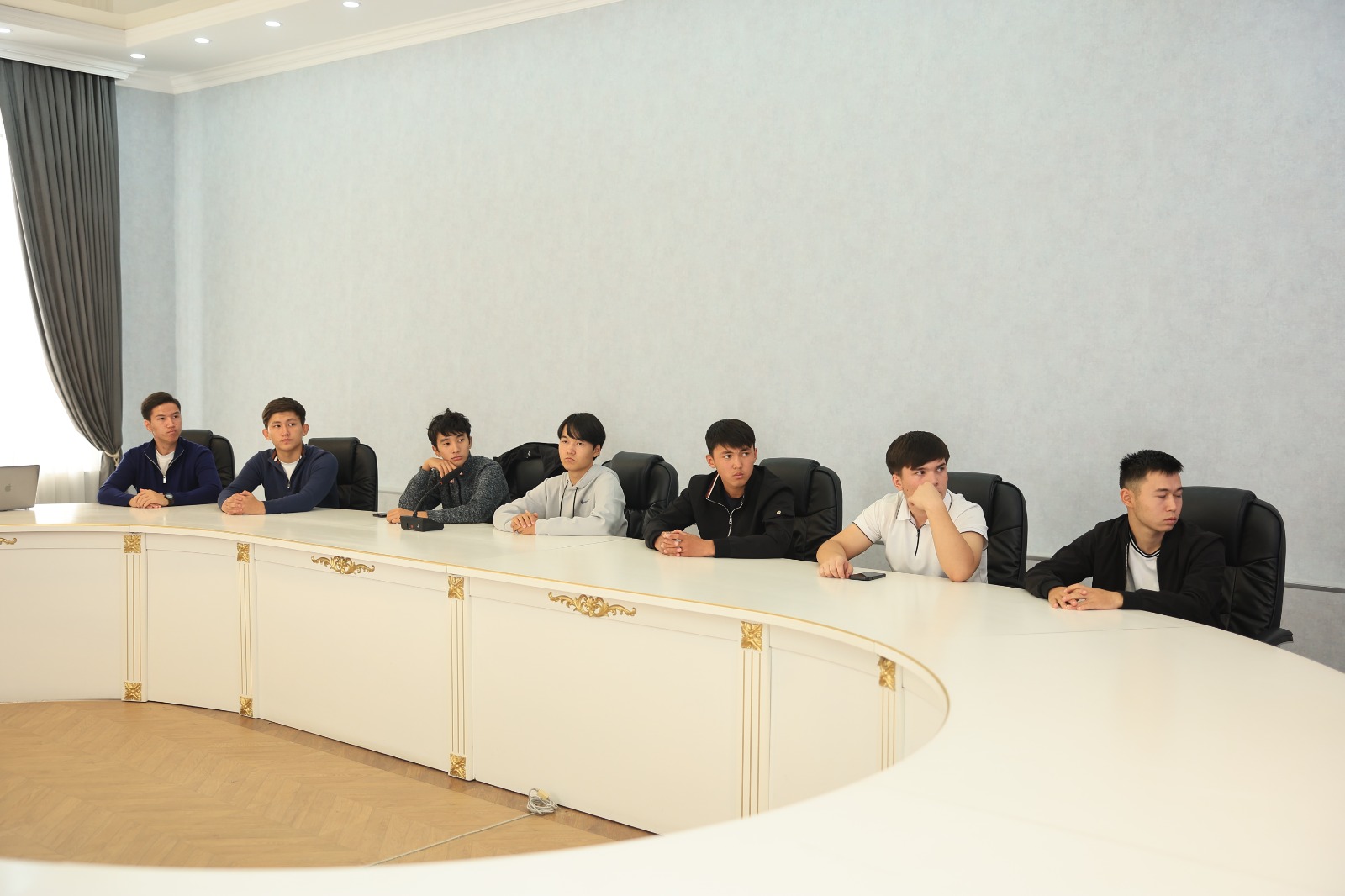News
Digital Breakthrough in Kazakhstan: AI – The Driving Force of the Future
- Hits: 95
The Higher School of Information Technology and Energy at M. Auezov South Kazakhstan University hosted a roundtable discussion titled ‘Digital Breakthrough in Kazakhstan: Artificial Intelligence – The Driving Force of the Future”. The event brought together faculty members and students, all of whom took an active part in the discussion.
During the meeting, Sayan Nurmagambet, the Deputy Dean for Educational Work and Social Affairs, and the Heads of Departments, Zhalgasbek Iztaev (Information Systems and Modelling) and A. Musabekov (Automation, Telecommunications and Control), shared their perspectives on the development of artificial intelligence and its role in education, industry and the national economy.
In his presentation, 'Artificial Intelligence and Digital Kazakhstan', Bekarys Aidaulet, a lecturer from the Department of Information Systems and Modelling, highlighted the new challenges of the AI era.
‘The main goal at this stage is to advance digitalisation beyond automation by introducing intelligent solutions that generate new value and stimulate economic growth. The core of the programme at this new stage is AI technologies. We used to convert paper-based processes into digital formats, but now our goal is to turn data into knowledge," — noted Bekarys Aidaulet.
According to the lecturer, the university has already introduced new academic disciplines focused on artificial intelligence, including 'Fundamentals of Artificial Neural Network Theory', 'Fundamentals of Computational Linguistics', and 'Processing of Fuzzy Knowledge and Logical Inference'.
In her report, 'The Use of AI Avatars in the Educational Process: Opportunities and Prospects’, lecturer Aigerim Seitkhanova presented scientific publications and shared her experience of using AI tools in teaching. Young researcher D. Abenov presented his research on energy efficiency using artificial intelligence technologies.
Students majoring in IT, energy and cybersecurity also played an active role in the discussion of the ideas and research results presented by the speakers.
It is also worth noting that the university’s laboratories are conducting ongoing research and pilot projects in image recognition, natural language processing and intelligent robotics.
During the meeting, Sayan Nurmagambet, the Deputy Dean for Educational Work and Social Affairs, and the Heads of Departments, Zhalgasbek Iztaev (Information Systems and Modelling) and A. Musabekov (Automation, Telecommunications and Control), shared their perspectives on the development of artificial intelligence and its role in education, industry and the national economy.
In his presentation, 'Artificial Intelligence and Digital Kazakhstan', Bekarys Aidaulet, a lecturer from the Department of Information Systems and Modelling, highlighted the new challenges of the AI era.
‘The main goal at this stage is to advance digitalisation beyond automation by introducing intelligent solutions that generate new value and stimulate economic growth. The core of the programme at this new stage is AI technologies. We used to convert paper-based processes into digital formats, but now our goal is to turn data into knowledge," — noted Bekarys Aidaulet.
According to the lecturer, the university has already introduced new academic disciplines focused on artificial intelligence, including 'Fundamentals of Artificial Neural Network Theory', 'Fundamentals of Computational Linguistics', and 'Processing of Fuzzy Knowledge and Logical Inference'.
In her report, 'The Use of AI Avatars in the Educational Process: Opportunities and Prospects’, lecturer Aigerim Seitkhanova presented scientific publications and shared her experience of using AI tools in teaching. Young researcher D. Abenov presented his research on energy efficiency using artificial intelligence technologies.
Students majoring in IT, energy and cybersecurity also played an active role in the discussion of the ideas and research results presented by the speakers.
It is also worth noting that the university’s laboratories are conducting ongoing research and pilot projects in image recognition, natural language processing and intelligent robotics.
Found a typo? Please select it and press Ctrl + Enter.





